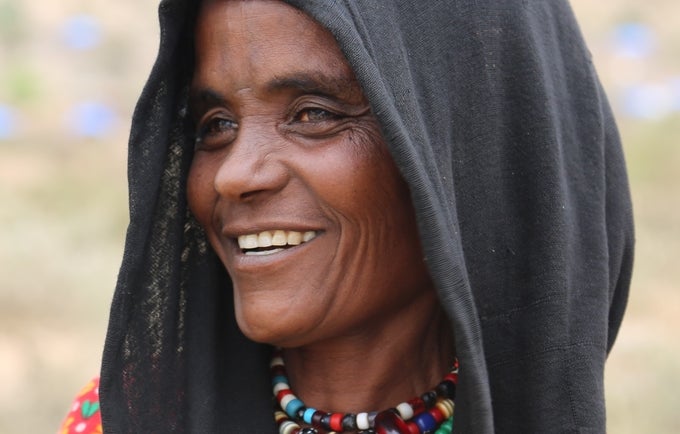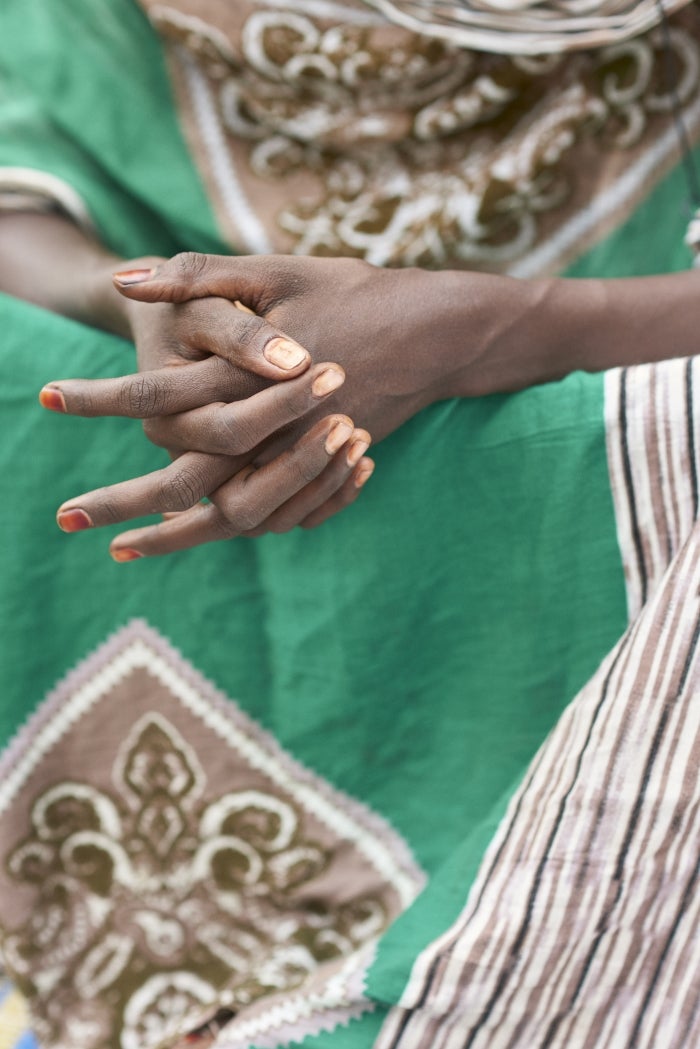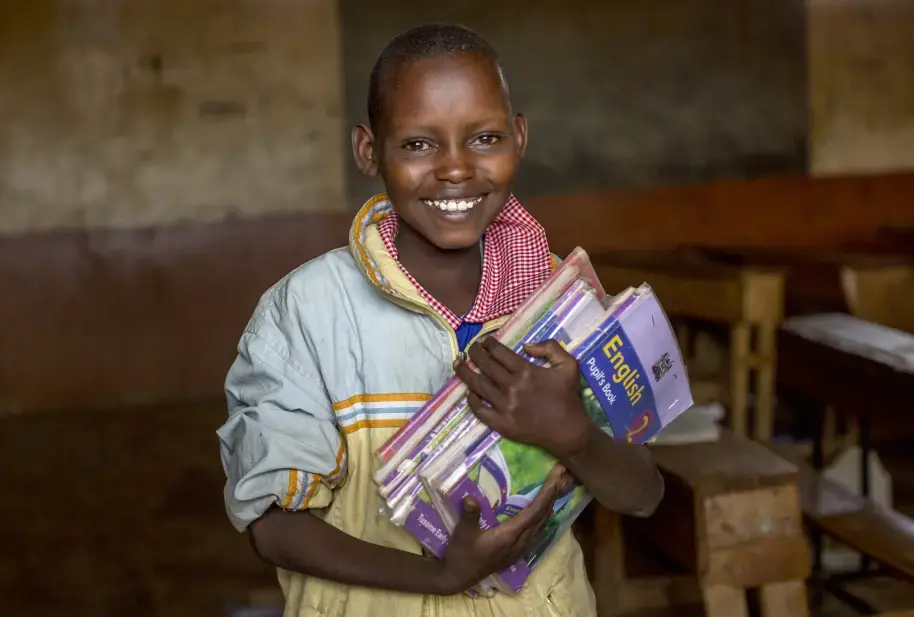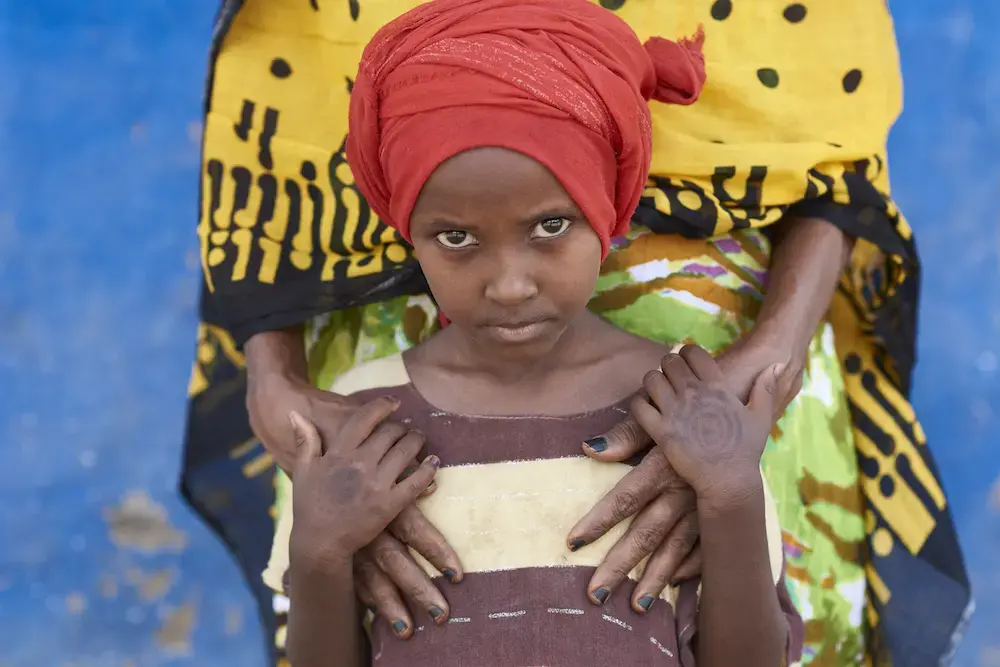ABALA DISTRICT, Afar Region, Ethiopia—“Women suffer during sexual intercourse with their husbands and face untold misery during childbirth due to female genital mutilation,” says Aisha Dima Abdella, a traditional birth attendant. She witnessed at first hand the excruciating pain women and young girls endured when she attended child births.
“FGM doesn’t serve any purpose other than harming the body of a girl and jeopardizing her life,” she says. She also understands the suffering girls endure as child brides, as she herself was one.

FGM doesn’t serve any purpose other than harming the body of a girl and jeopardizing her life.
Ms. Abdella was already an opponent of female genital mutilation (FGM) and child marriage, which are widely practiced in her district, when the Integrated Programme on Prevention of Child Marriage and FGM was launched there six years ago. She is now an active participant in bi-weekly community conversations in her community to discuss FGM and child marriage, which put women and girls in harm’s way.
This programme is being implemented in 13 localities in the Abala District of the Afar Region, with support from UNFPA through funding from the UN Association in Sweden. It is overseen by the Region’s Women and Children Affairs Bureau. UNFPA piloted the integrated programme in the Afambo District in 2012. Notable successes included all intervention localities publicly declaring the abandonment of both practices, after four years of implementation.
Creating social change on FGM

Much of the credit is due to the efforts of influential members of the community, such as Ms. Abdella.
“I am very happy to be part of the social change movement created by the programme,” she says. Not only does she teach members of her community about the harmful consequences of FGM and child marriage at social gatherings but she also goes house to house, clearing up any misconceptions people may have about them.
“I am very happy to see such changes in my lifetime, to see that women are delivering at health institutions and girls are being spared from FGM,” she says.
Yet social change is not without challenges, which Ms. Abdella is prepared to confront. “If I see the commission of FGM and child marriage, I will do whatever it takes to report the matter to the authorities.”
Ensuring safe delivery
She has also stopped conducting home deliveries and is now supporting efforts to promote institutional delivery, which remains very low in the region. “I am working closely with health workers to make sure that pregnant women deliver at health institutions,” she says. She calls an ambulance to take pregnant women to the Health Centre when their due date arrives.
Ms. Abdella is confident that the progress made to date on ending child marriage and FGM is sustainable.
“I have no fear that the changes we are seeing and the gains made will be reversed, as the community has owned the changes,” she says. However, the momentum created by the programme should be maintained to prevent these harmful practices being continued in secret, she warns.




